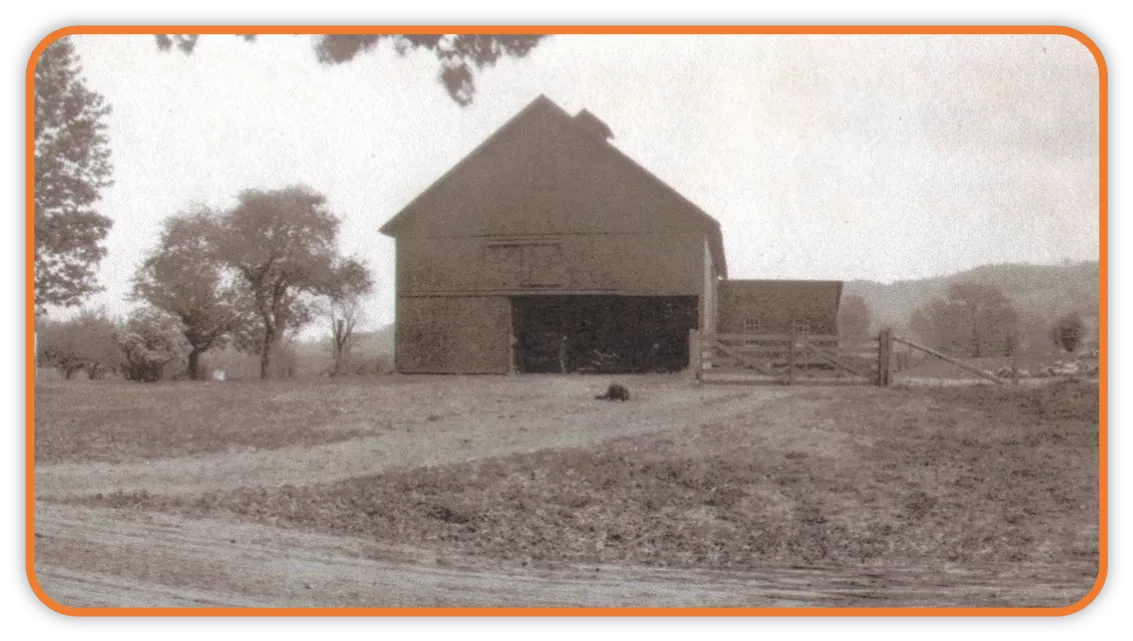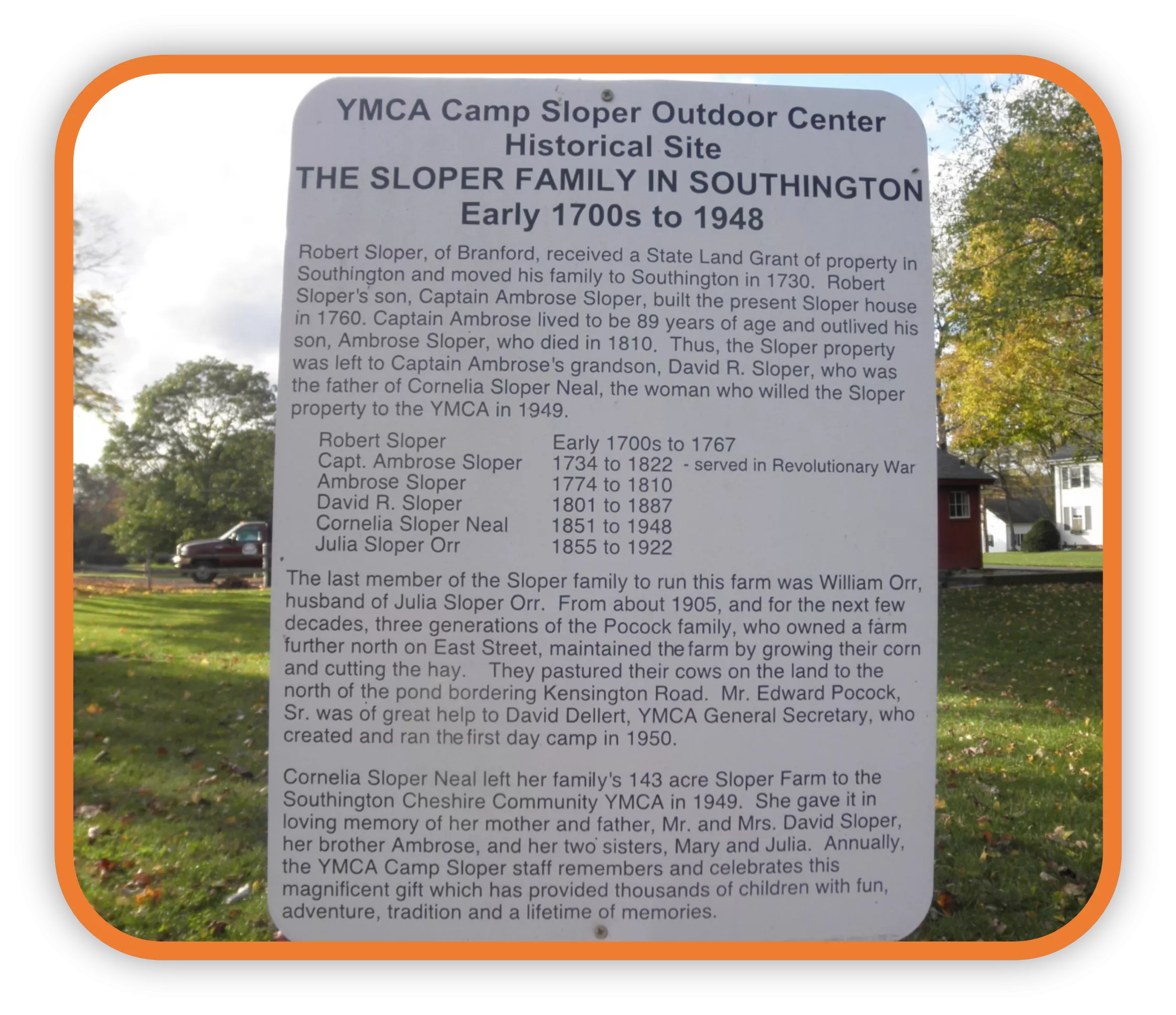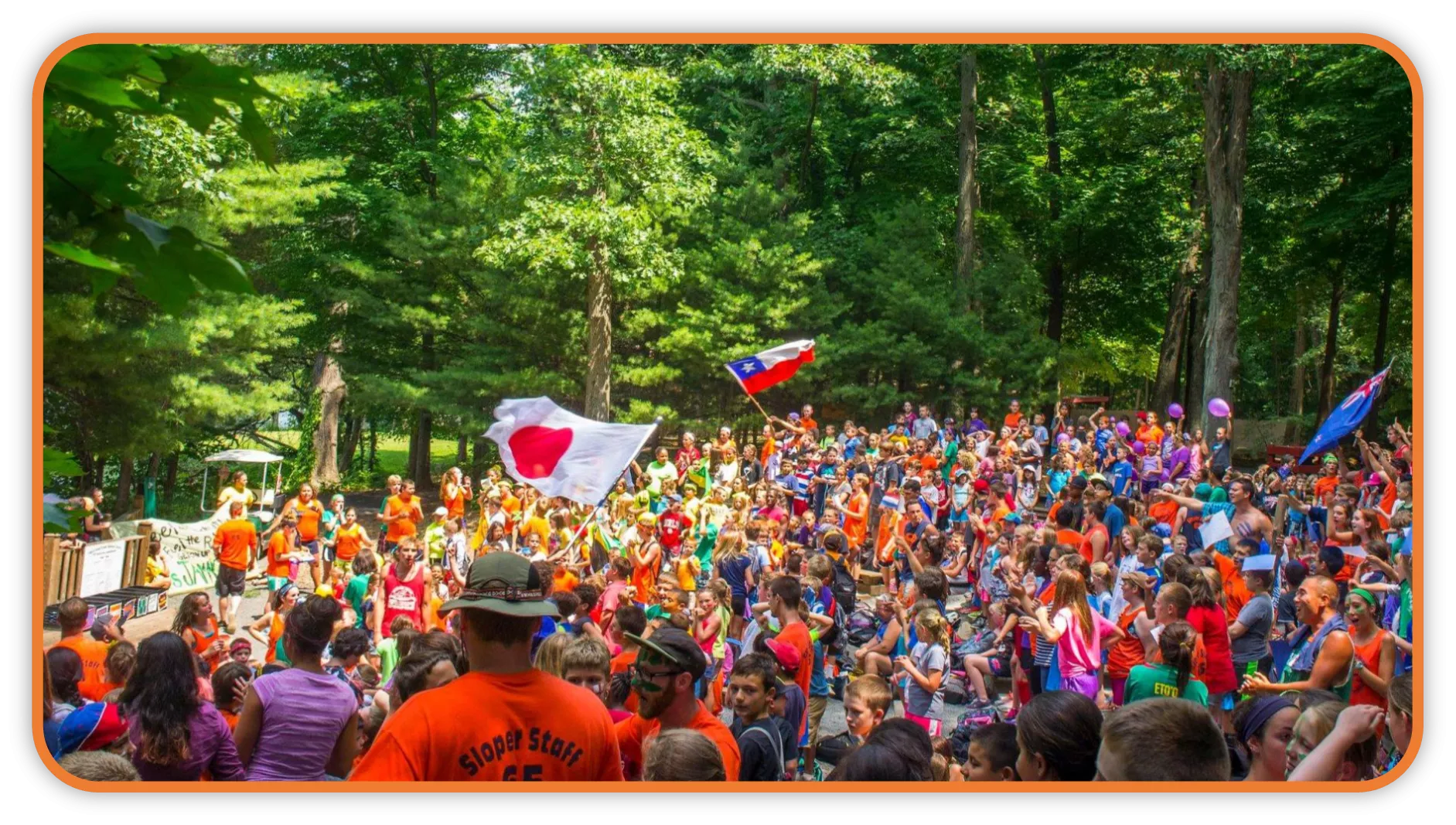A Quick Sloper History
In the beginning, there were only cow pastures, a little white house, and a big red barn nestled in the hills of Southington. Farm animals roamed the hill sides grazing at the waters edge and the peaceful sounds of the killdeer flutter through the air.
In 1730, Robert Sloper received a State Land Grant of a property in Southington in a fertile rolling valley blessed with good farmland and a small flowing stream know as Misery Brook.
Fast forward to 1949, Cornelia Sloper Neal, last survival family member, gave the greatest gift of her generation to her local YMCA. Her Last Will and Testament state: "It is my will, that said farm, with the pond of water thereon, shall be developed for, and used as a camp site, and for water sports, and for promoting similar outdoor health and recreational activities, for the largest number possible of young men and young women..." This gift would develop over the next 75 years into YMCA Camp Sloper, an Outdoor Center that provides year round programming to thousands of youth. For this, we say thank you to Cornelia and the entire Sloper/Neil family for gifting such a magical place.
The Businesses of Sloper
Three businesses thrived prior to the bequest that put Sloper on the map. The first business that developed in the early 1800's was a Cement Mill. Nearby the property, a special type of limestone was discovered under a pond that was perfect for many masonry projects such as bridge work, dams, buildings, and in particular, the Farmington Canal project. Sloper was used as the manufacturing plant for cement and was sold and distributed throughout the surrounding towns.
The second business, after the cement mill was ended due to rising costs and competitors with more resources, was the Sloper Creamery. In cooperation with area farmers, Sloper Farm became the premier producer of the regions finest butter, butter that was sold to the finest hotels in New York City. At such a high quality, profits were substantial (for the time) selling a pound of butter for $1.00. Eventually, butter was not as high in demand and the business became unprofitable and closed in 1890.
Rounding out the properties illustrious history, an Ice Farm was started around 1900 by the brother-in-law of Cornelia, William Orr. After building a dam to increase the size and depth of Sloper pond, Orr created a very successful Ice block business, selling blocks of ice to businesses and homes around the region. In the late 1930's, business declined as electric refrigeration was a prominent and available means to keep items cold.
Present Day Sloper
Present day Sloper services over 40,000 youth throughout the year through teambuilding, school group, rental, birthday party, educational, and day camp programming. Our flag ship program is the summer day camp, where campers from all over join us for fun, adventure, and traditions like no where else. In the summer, we will get on average 900+ campers every day with over 200 staff making the magic come to life. Sloper offers a mixture of traditional, ageless camp activities and new age programs that mirror the interests of modern youth. Some of the activities include: swimming, archery, arts and crafts, boating, Ninja Warrior Course, a crystal mine, the Sloper Express, basketball, 4-Square, a Library, Nature center, Splash Park, low ropes challenge course, a climbing tower, and high ropes.



